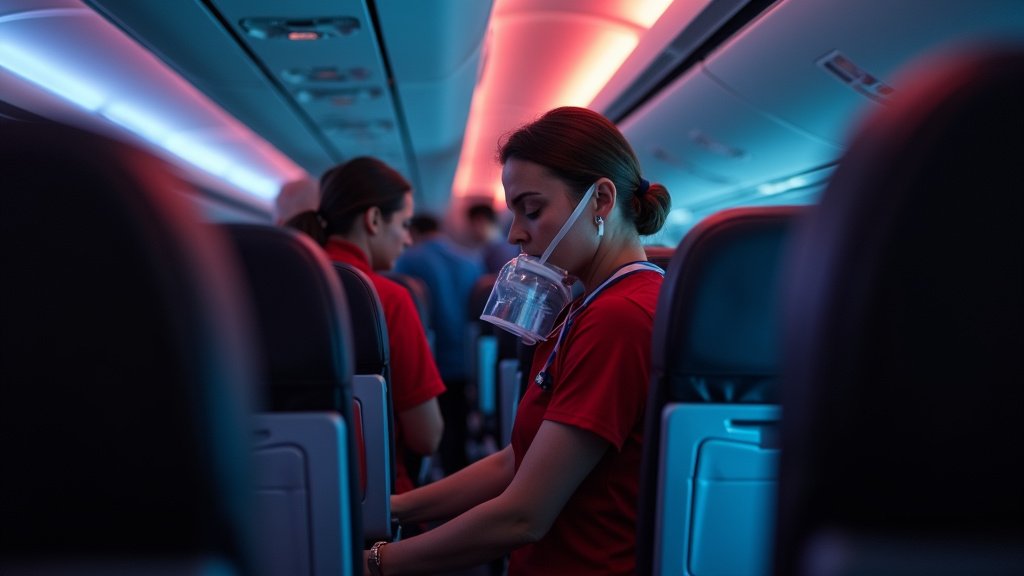Cabin Crew: More Than Meets the Eye
The role of cabin crew has long been associated with providing in-flight service, from distributing meals to ensuring passenger comfort. However, a recent discussion on Simple Flying highlights a critical, often-overlooked aspect of their responsibilities: safety. The comments, posted on January 4, 2025, paint a picture of a profession that demands much more than simply serving beverages; it demands vigilance, expertise, and a deep commitment to passenger well-being.
A Look Back: The Evolving Image of Air Travel
One commenter, in a nostalgic recollection, brought up the historical context of air travel. They specifically mentioned Air Jamaica and the atmosphere it cultivated in its heyday. The mention of rum drinks and fashion shows served onboard evokes a time when air travel was a more glamorous experience, focusing primarily on service and entertainment. This comparison provides a stark contrast to the contemporary understanding of the cabin crew’s primary role. It emphasizes the shift towards a more safety-conscious approach.
The Safety Imperative: A Closer Examination
The core theme of the comments revolves around the crucial safety function of cabin crew. Several participants in the discussion underscored the fact that cabin crew are, first and foremost, safety professionals. They are trained extensively in emergency procedures, evacuation protocols, and first aid. This training equips them to handle a range of critical situations, from medical emergencies to managing unruly passengers and, most importantly, ensuring a safe and orderly evacuation in the event of an accident.
Their expertise extends to cabin management, where they are responsible for maintaining order, monitoring potential hazards, and enforcing safety regulations. This often involves subtly guiding passengers to comply with safety instructions, such as fastening seatbelts and stowing carry-on luggage appropriately. Beyond their physical presence, they are often the first point of contact for passengers in distress, providing reassurance and assistance during stressful situations.
The Underappreciated Professionals
Unfortunately, as the comments reveal, the safety-focused role of cabin crew is frequently underappreciated by passengers. Many travelers may view cabin crew primarily as service providers, overlooking the extensive training and responsibilities they carry. This lack of appreciation can lead to misunderstandings, conflict, and a diminished respect for the crew’s authority.
This underappreciation isn’t just a matter of passenger behavior; it reflects a broader societal view that often prioritizes service over safety. It underscores the need for greater public awareness of the critical role cabin crew play in ensuring the safety of air travel. Educating passengers on the depth and breadth of their training, responsibilities, and expertise is crucial for fostering a more respectful and cooperative environment aboard aircraft.
Beyond the Routine: Everyday Examples
The cabin crew’s contributions to safety are evident in everyday situations. This includes the routine pre-flight safety checks, the ongoing monitoring of passenger behavior, and the immediate response to any irregularities. These tasks, though often unseen, are integral to preventing accidents and ensuring passenger safety.
Their ability to remain calm under pressure, make split-second decisions, and provide effective assistance in emergencies sets them apart from other service personnel. This demanding role requires physical and mental resilience, as well as excellent communication and interpersonal skills.
A Call for Recognition
Ultimately, the discussion on Simple Flying highlights the need to recognize cabin crew for what they are: trained safety professionals. By shifting the focus from mere service to safety, the industry can improve the overall air travel experience. Passengers will be more respectful of the crew’s authority, and the crew will be better equipped to perform their duties effectively. Embracing this shift is essential for a safer and more appreciative environment in the skies.

